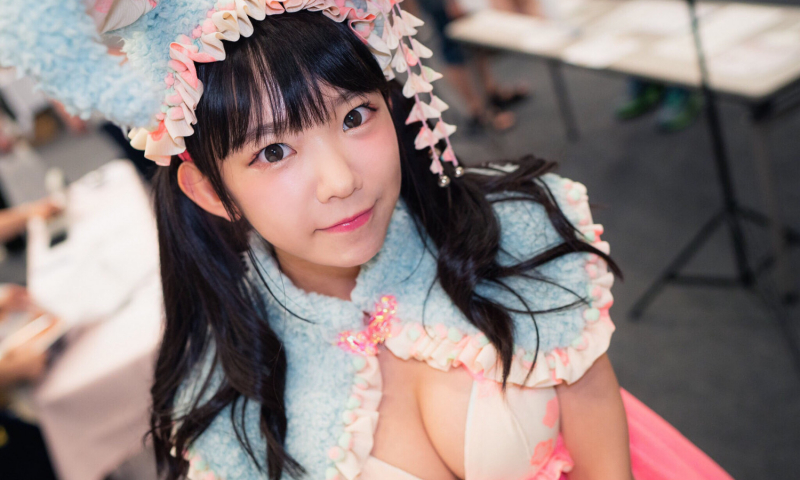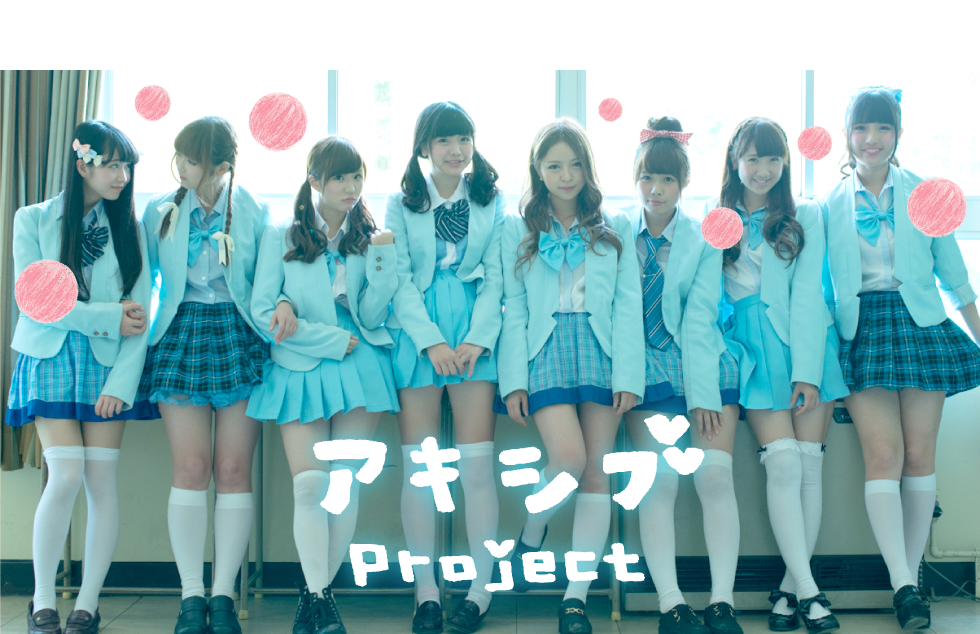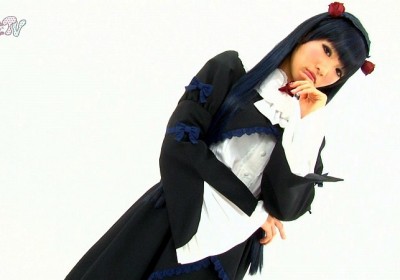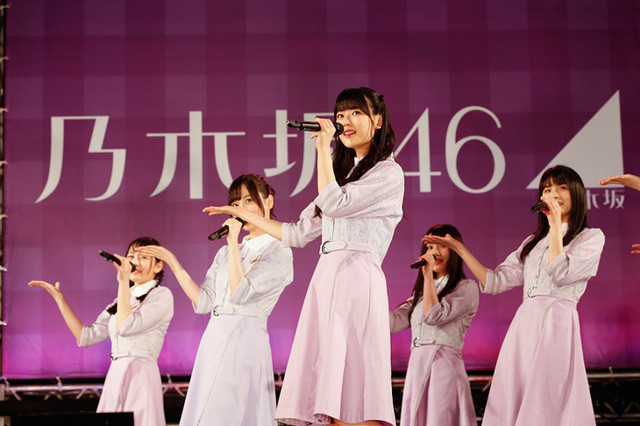
Baring it All: Idols Who Show Their Forehead With Their Hairstyle


Sponsored Links
The song “Ai Oboeteimasu ka” from the anime film Macross: Do You Remember Love? begins “Right now I can hear your voice saying, ‘Come here’”, and was sung on stage by idol singer Lynn Minmay. The anime paints a love story between her and the main character, but as I watched it all I could think was, “A relationship with an idol? Really?”
「今 あなたの声が聴こえる『ここにおいで』と」ではじまる楽曲『愛・おぼえていますか』は、アニメ映画『超時空要塞マクロス 愛・おぼえていますか』にて、アイドル歌手リン・ミンメイが歌う劇中歌だ。そしてこのアニメでは主人公とアイドル歌手との恋愛についても描かれているのだが、「まさかアイドルと恋愛なんて」と思いながら当時は見ていた。
Of course idols are girls just like me, so it makes sense they fall in love, too. It’s just I had never considered that person could be a fan.
もちろんアイドルもひとりの女の子なのだから、恋愛することもあるだろう。だけど、その対象が「ファン」だなんて、思いもしないことだった。
But since hearing, for example, Yuko Anai from Tokyo Performance Doll talking about how she made phone calls to fans before, I began to consider that likely there was more than a zero chance of it happening. I had felt that there was a certain amount of distance between idols and their fans.
例えば東京パフォーマンスドールの穴井夕子が「気になったファンに電話をかけたことがある」などと話をしていたり、当時からその可能性はゼロではなかったのかもしれない。とはいえ、アイドルとファンとの間にはある程度の距離感があったように感じる。
But this “sense of distance” has is very much different from idols from the 80s and 90s and idols now.
この「距離感」こそが、80、90年代のアイドルといまのアイドルとの大きな違いだろう。
In the past, as well as now, there have always been fans that wanting to be in a relationship with an idol. Whether just a daydream or a real desire depends on the person. But now there are fans that view idols as normal girls or love interests, which is referred to as “gachi koi”. (Being “in love” with an idol as opposed to just loving an idol.) The song “Gachi Koi Revolution” by Akishibu Project treats the matter if it were entirely normal.
「アイドルと恋愛したい」という想いは、きっといまも昔も変わらずアイドルファンの中にあることだと思う。それが「妄想」なのか「現実」なのか……といった部分かもしれない。いまはアイドルを普通の女の子のように恋愛対象として見ている「ガチ恋」と呼ばれるファンが多い。アキシブprojectの『ガチ恋レボリューション』なんて曲もあり、当たり前の存在として扱われている。
But what is really surprising is when an idol starts dating (or having a relations) with a fan and then quits. There have been instances where not only was the idol dismissed, but a lawsuit was then filed against her. This might be an example of an extreme case, but I feel like the distance between idols and fans are now closer than ever.
そして驚くのは、実際にファンと付き合うことになり(つながり)辞めてしまうアイドルがいるということだ。事務所からの解雇だけではなく、訴訟にまで発展したものもあった。これは行き過ぎたケースかもしれないが、いまはアイドルとファンの距離感がものすごく近いと感じるのだ。
The word idol doesn’t refer to the kind of idol that you worship, but evolved to mean a figure you can enjoy a pseudo-relationship with. You can think of them more “ai dolls” (“love dolls”), like the word sounds phonetically.
アイドルは、言葉の意味である崇拝する対象としての「偶像」ではなくて、疑似恋愛を楽しむ対象に変化しているのかもしれない。「愛人形」っていう当て字のほうがしっくりくる。
You may think idol talks and so-called “contact” events began with today’s idols, but many of these kinds of events were already happening in the 80s, with lines for post-release handshake events that would take place on department store rooftops and elsewhere. Of course even then there were loop fans (fans who line up again and again). However this kind of contact was considered a “privilege” and regarded as something special by fans.
アイドルと話をするなど、いわゆる「接触」イベントは、よくいまのアイドルからスタートしたものだと思われがちだが、80年代にはすでに多く行われていて、デパート屋上などでのリリースイベント後には握手会の列ができていた。もちろんループする(繰り返し列に並ぶ)ファンもいた。ただしその接触は「特典」であって、特別なものだという意識はファンにあったように思う。
Now this kind of contact is considered a given rather than a privilege. It’s not just that there are many of these kinds of events now, but is consciously reflected in both fans and idols. Fans recognize how the scene is based contact, and idols feel that they can appeal to fans through contact. No matter for how little the amount of time, both sides acknowledge creating that harmony in the current scene. It has an air that the handshake events of the 80s did not. During those days, the relationship between idols and fans were one-sided. There wasn’t much thought put into bringing up topics from the idols‘ side or the fans‘ side like there is today. Possibly one reason might be because they did not really know one another very well.
いまは接触イベントが特典ではなくて当たり前になっている。それは実際にそうしたイベントが多いということだけではなくて、ファンやアイドル側の意識にも表れている。ファンは「接触ありきの現場」という認識だろうし、アイドルは「接触でアピールする」という思いがあるだろう。どれだけ短い時間の中で仲よくなり、お互いを「認知」させるか、というのがいまの現場だ。80年代の握手会の現場にはまったくなかった空気がそこにはある。当時のアイドルとファンの関係は一方通行的な感じだ。いまのように、アイドル側からファン側に話題を振るなど、ほとんど考えられないことだった。それはきっとその相手のことがわからないから、というのも理由のひとつだろう。
So I think this “awareness” turn into “being in love with an idol”. Through mutual awareness, two-way conversation was established. And in that space, idols and fans exist as merely men and women.
だからこそ、「認知」が「ガチ恋」につながる要因では? と思う。認知があるから双方向に話題が生まれて会話が成立する。その空間は、アイドルとファンではなくひとりずつの男女として存在するのだ。
Now there are idols that give concerts or perform nearly every day. And so there are contact events going on almost daily. There are fans that participate in their concerts most days, and talk with them almost every day. Surely current idols talk with fans more than anyone else besides their own families. On the fans’ side as well, there must be many fans that talk with idols more than any other person of the opposite sex. In these circumstances, it would seem strange instead if romantic feelings didn’t spur from this kind of situation.
いま、ほぼ毎日ライブに出演している、というアイドルも多い。そしてほぼ毎日、接触イベントがある。ほぼ毎日ライブに参加しているファンと、ほぼ毎日会話をする──なんてこともあるだろう。きっと、いまのアイドルは、家族を含めて誰よりもファンと会話をしているように思うのだ。それはファン側も同じで、いちばん会話をする異性はアイドル──というファンは多いだろう。そうした状況で恋愛感情が生まれないこと自体が、実は不思議なことに感じる。
Currently idol concerts are held daily at a number of locations, and respectively, a large number of fans move around looking for their favorite venues.
現在、アイドルのライブはさまざまな場所でほぼ毎日行われており、多くのファンがそれぞれ、気に入った会場を探して回っている
Nonetheless, even though idols and fans are very close like this, the majority of idols draw a line to keep their distance from fans, without leading them on. Both parties must have mutual trust to maintain this idol and fan relationship, without crossing the line. As if it is fulfilling this kind of “pseudo-love”. This is just one part of an idol’s job, and I feel it is something very Japanese. What has been born from the close distance between idols and fans is a new culture in itself.
とはいえ、このようにアイドルとファンがとても近い状況であっても、ファンと一定の距離感を保ち、つながることなく、一線を画するアイドルが大多数だ。お互いに信頼し合いながらも、アイドルとファンの関係性を保ち続け、その一線を踏み越えることはない。ある種「疑似恋愛」の対象としての使命をまっとうしているように感じるのだ。それは「アイドル」というものさえひとつの職業としてとらえているようで、ともて日本的だなと感じる。アイドルとファンの距離が近くなったことにより生まれた、新たな文化だなと思うのだ。
Featured song: “Ai Oboeteimasu ka”/Mari Iiijima
※今回の1曲:「愛・おぼえていますか」飯島真理
Translated by Jamie Koide
Sponsored Links

[Exclusive Program] Tokyo GIrls’ Update TV #006 : SBY in Shibuya109 & Pikarin’s Cosplay

8th Wave of Tokyo Idol Festival 2016 Performers Announced!!



